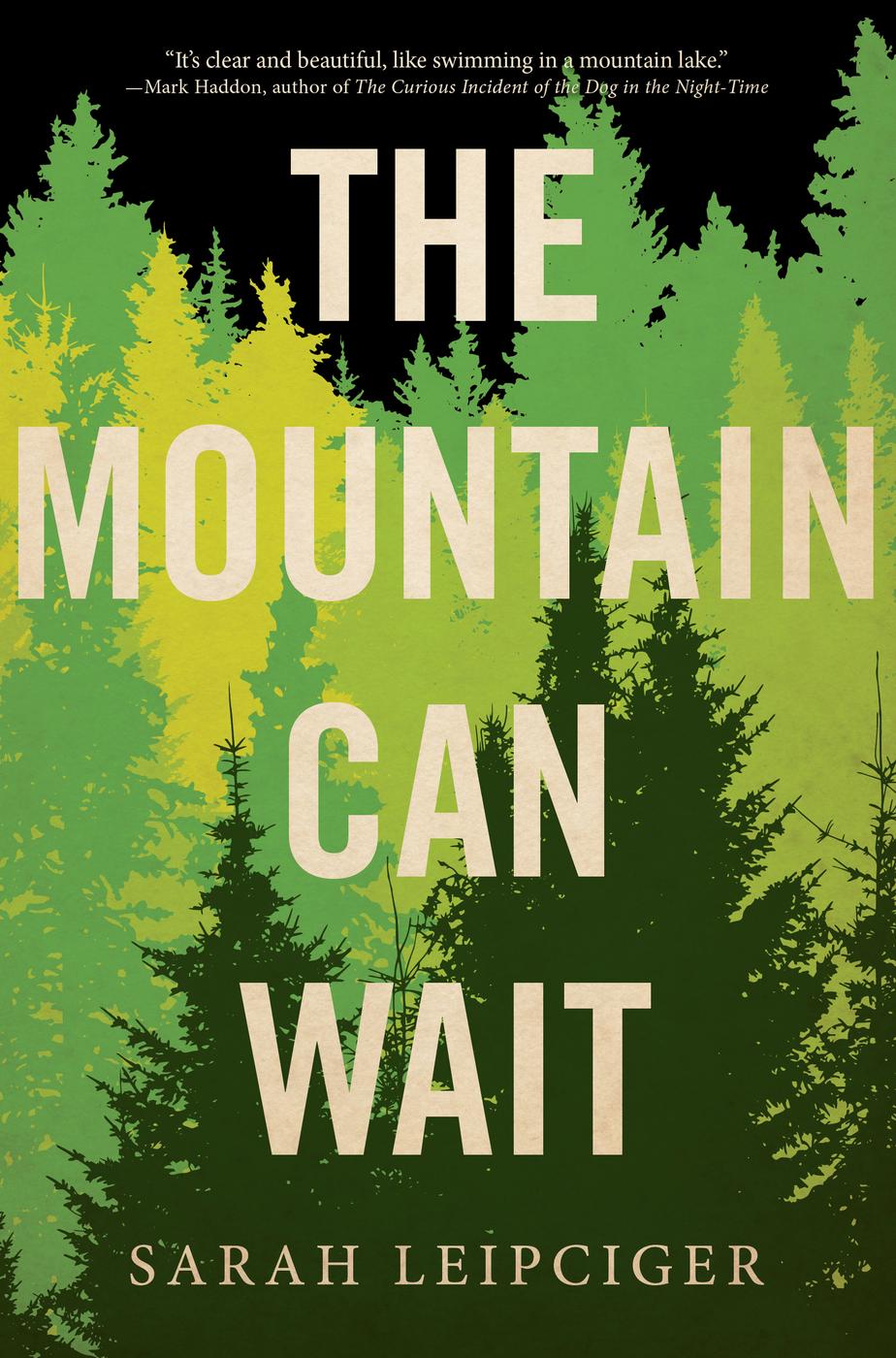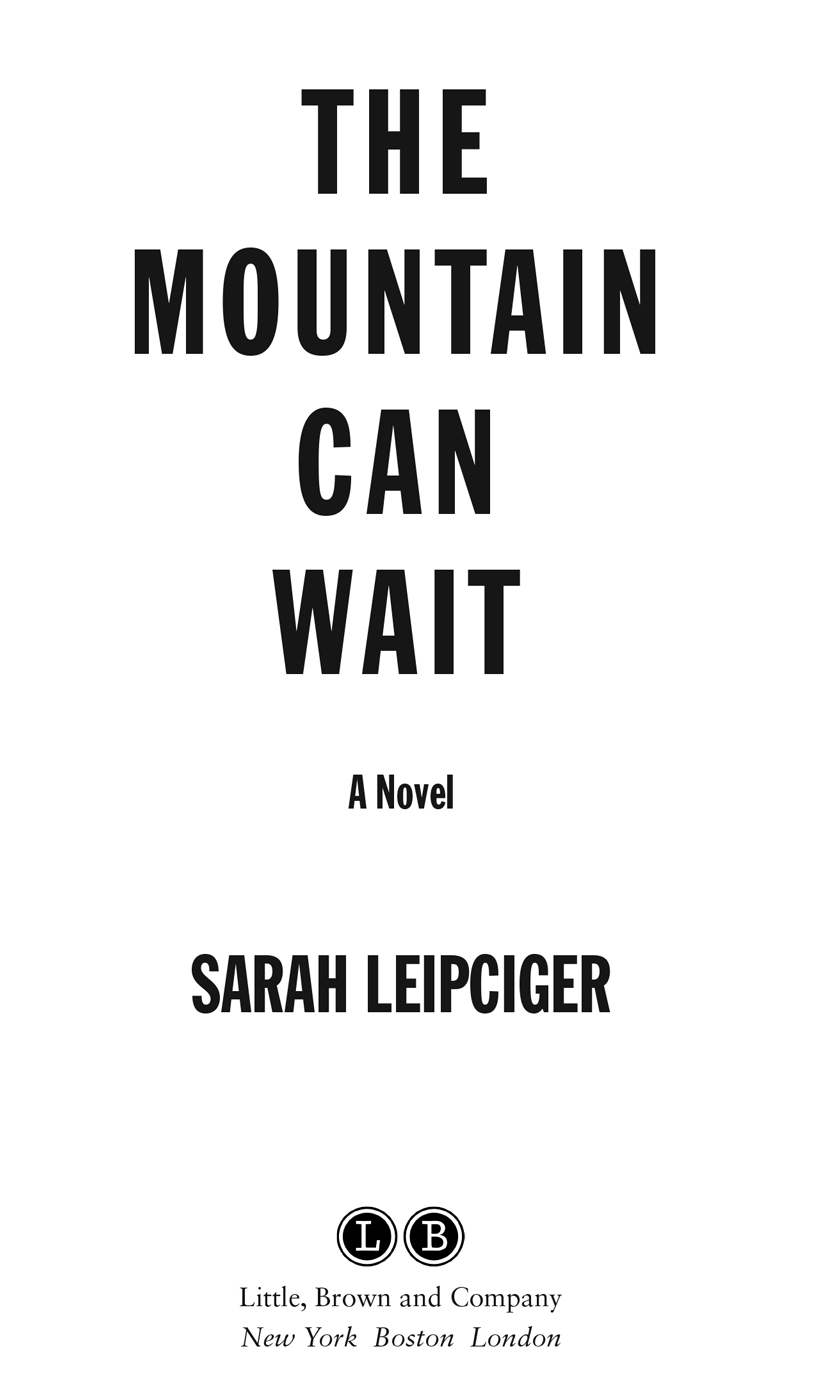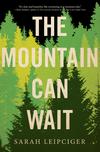The Mountain Can Wait
Read The Mountain Can Wait Online
Authors: Sarah Leipciger




In accordance with the U.S. Copyright Act of 1976, the scanning, uploading, and electronic sharing of any part of this book without the permission of the publisher constitute unlawful piracy and theft of the author's intellectual property. If you would like to use material from the book (other than for review purposes), prior written permission must be obtained by contacting the publisher at [email protected]. Thank you for your support of the author's rights.
For James
The night
was still black when Curtis pulled his Suburban away from the curb and turned toward the mountain highway, leaving his apartment, his sleeping street behind him. He would have preferred to ride his bike but the tire was flat and anyway it was too cold, and rain was coming. He would find some side road up the mountain where he could park and stay warm until the sun rose, and then he'd hike for as long as his legs could carry him. Ascend to a place where the view was different and things that towered and loomed down here would narrow to pin shadows and then to nothing.
With his windows rolled down, he tickled the curves slowly, and the high that had been fading in him came back up. Calm poured through his body and the wind was music. The cold, dewy air tasted like spring moss, like pine. The needle on the speedometer slipped across seventy kilometers and he slowed down to forty. But minutes later, when he glanced at the needle again, it was back up at seventy. The road began a long-curved descent and he pulsed the brakes.
He engaged the dashboard lighter and lifted his right thigh, and wedged his fingers into his back pocket, feeling for his small tin box. It wasn't there. He reached farther and excavated the gap in the back of the seat. The road was a tunnel. He glanced at the passenger-side footwell but saw only a badly folded road map and a refillable plastic coffee mug that he had stopped using because he'd lost the lid.
Her face in the headlights flashed like a coin, the features etched in silver blue. She was an instant, the sulfuric flare of a match, and though he had time to hit the brakes his foot found the accelerator instead. And there was a dull slap. Something white seemed to pause in the air. The sound of a broad, square nose of metal pummeling muscle and bone was flat and without ring. He stopped the truck with its nose pointing into the middle of the road and, confused, felt for his tin in the other pocket, as this somehow still seemed important. Looked for it in the footwell. In his bag. In his lap. The dashboard lighter sprang. He turned off his headlights and the ignition and listened to his own breathing and the ticking of the engine, and then peered out his window for many minutes into the dark. There was nobody there. He got out of the truck and walked slowly up the road; no one in the ditch, no one on the pavement. He looked back at the truck, askew in the road, the door hanging open like a crooked tooth. He continued along the opposite shoulder, low mist in the trees, the crunch of gravel. Up ahead in the ditch, two white, high-top sneakers, one pointing up, the other toward him. A pair of bare legs. He thought: It's too cold out here for that. The rest of her was hidden by the mountain pines.
Curtis stood very still in the road, shivering, then bent at the waist with his hands on his knees and tried to spit. He stood back up and turned around and pressed his feet deeply into each step so that the world might not hear his retreat. When he pulled the door shut on his truck, the hinge bit loudly into the night. The clunk of the cold metal latch. He drove home at a crawl, passing no one, the engine rattling his teeth in their sockets.
The dog
had been sick for three months when Tom decided to end its life. It was January when they noticed something was wrongâthe first time in fourteen years that Rocky rejected meat from the table. His portion of roast beef went untouched for twenty-four hours in his steel bowl before Tom gave up and scraped the woody slab of dry meat and coagulated gravy into the garbage.
The dog didn't eat for another three days, so Tom took him to the vet and the vet had a look at his teeth, smelled his breath, palpated his abdomen. He suspected it was kidney failure and took a sample of Rocky's blood and urine to be sure. He phoned Tom at home later that day with the results, something about the proteins in Rocky's blood being ten times what you would expect in a dog. Given Rocky's age and the advancement of the disease, the vet recommended against treatment and predicted that the end would come in weeks. It was clear that Rocky knew what was happening. Tom took the dog's soft, dry muzzle in his palm and looked deeply into his eyes and said, “What we'll do, dog, is we'll just wait this one out, eh? We'll just let you do this your way.” Tom could wait.
But by April, Rocky was still alive. In the mornings when Tom went downstairs, he expected Rocky to be gone, through his flap in the back door, gone to die alone the way a dog should. But every morning he was there, crumpled like an old coat under the kitchen table. Erin wouldn't touch him anymore, said she could feel all his bones rolling under his skin. Tom heard her complaining to Curtis over the phone, saying that Dad was barbaric, and asking how she could convince him to take Rocky to the vet and put him out of his misery. But Tom wasn't going to do that. Rocky was a bush dog, a mountain dog. Wouldn't be right for him to end his days in some clean and clinical place.
But the dog wouldn't die. His loyalty got the better of him, Tom was sure, and the poor bastard couldn't leave. It was in the dog's eyes, his plea to be let go. Tom tried to move him along. He'd say things like “Go on, dog, take yourself off now. We'll get on without you” or “It's your time, old buddy. Go on an' git!” But Rocky left the dying too long, and in the end was too weak to muster up the energy for it.
So on a Wednesday morning, after Erin left for school, Tom went down into the basement with the key to the gun cupboard in his fist. He unlocked the metal door and stared hard at the big-game Remington and at the long rifle that he used for rabbits and raccoons and any other varmint that looked fat enough to eat. And though it was a little on the heavy side, he chose the Remington because it would have been a hell of a thing to have to shoot twice. From a trunk under the stairs he pulled out a box of soft points and slipped two rounds into his coat pocket.
Upstairs, Rocky lay curled up on top of the heating vent in the living room. Unable to look at him, Tom held the rifle close to his body, away from the dog's gaze, and took it out to his Ford, stopping in the kitchen to retrieve a half-empty mickey of Jack Daniel's. He came back in and wrapped up Rocky in a knitted blanket and carried the limp, forty-pound bundle out to his truck and laid him gently in the passenger seat. The hardest part, harder even than what was coming, was Rocky's total lack of interest in what was happening to him. The dog curled himself deeper into the blanket and his eyes closed slowly, but not completely, as if he didn't have the muscle power to keep them shut.
Tom drove to the north end of town, over the Nechako and past the hulking pulp and paper mill. It was a sunny morning and the last surviving islets of gritty snow shone hard and wet on the grassy roadside banks. He soon reached the Forest Road, a potholed dirt track that wound half a dozen kilometers northeast into the bush before ending in a teardrop-shaped lot. He rolled down his window a few inches and navigated the truck gently over bumps and ditches while Rocky dozed silently next to him. Tom made up a tune in his head and hummed it.
This was Tom's country, Rocky's country, and he could drive the Forest Road with his eyes closed. For years he came up here alone with his mountain bike, and later, when Curtis and Erin were small, after Elka left, he brought the dog with him on his rides. Rocky was almost fully grown when he was a year old, and by the time he was two, his black coat flowed over his hard muscles like oil and he weighed sixty pounds. When they went riding together, Rocky carried the water and repair kit in a pack tied to his back. He never tired. If he smelled big game up the trail, elk or bear or moose, he ran ahead, and by the time Tom caught up to him, the bush would be cracking and vibrating with the animal's retreat.
Once Rocky's antics with a bear nearly got them killed. Curtis, eleven by then, was riding with them. They were pedaling slowly, asses off their saddles and in granny gear, ascending a steep slope, when Rocky ran ahead. He crested the hill, and by the time they got close, they could hear him growling. Something big was huffing back at the dog. Tom told Curtis to wait while he rode on. He had to dismount and lift his bike over a log and then push it around a tight bend in the narrow trail. A large black bear stood full height on her hind legs several meters ahead. Her cub, glinty-eyed, clung to swaying branches midway up a pine just to the left of where Tom stood. Rocky was in an attack position, halfway between Tom and the long-nosed bear.
“Come on, Rocky,” he whispered, patting the dog's haunch. The bear went back down on all fours and took a step closer, sniffing the air and showing her spotted pink gums, her strong teeth. She swung her head and scratched the dirt with paws big enough to take a man's scalp, preparing to charge. She lifted her nose and rolled her top lip, hissed. Rocky's growl crawled to an even deeper, more ancient place. Again Tom commanded him to come, angrily, from the back of his throat. “Get over here, dog.”
“Dad?” Curtis had come around the bend and was there on his bike, splatters of mud on the soft, rosy skin of his cheeks. His skinny shins, under a pair of bony, square knees, were streaked with dried blood from an earlier crash.
Rocky faked a lunge at the bear and then backed away again. Fucking idiot dog.
“Curtis, go,” Tom said. His throat had gone dry. Curtis got off his bike to turn it on the narrow trail and pushed it, moving away clumsily. The bear huffed and, with her massive head swinging low, galloped a few steps toward them. Tom squared his shoulders, tried to make a wall out of his body with his son on the other side, and coughed out a loud bark. The bear stopped in midstride, dug her claws into dirt and dry leaves, and rolled her head away from him, pacing.
She would bluff a charge once, maybe twice, but they had to get out of there. Tom pushed his bike backward. The agitated bear puffed and grunted. Lifting his bike back over the log, he misjudged the height and caught the chain, popping it off the sprocket. He leaned over the bike and pushed the derailleur forward, creating slack so the chain could be maneuvered back into place. A drop of sweat prickled his nose and dropped coldly onto his arm, and he was suddenly aware that everything had become brighter. The dog and the bear made guttural sounds at each other, sounds that were getting closer to him. The cub bleated desperately in the tree. Tom waited for the wet thunk of a claw in his exposed neck, the back of his head, for the grate of tooth on skull. The derailleur slipped from his sweaty fingers and the chain fell back between the cog and the frame. One of the links jammed and he yanked it, jamming it further. He stopped. Reminded himself that the link got stuck with little force, so it would take little force to release it. He hoped that Curtis was well away. With greasy fingers, he gently pulsed the chain back and forth until it slipped free and then pushed the derailleur forward again until there was enough slack to loop the chain back onto the cog. He caught a whiff of bear, the musk in its fur and gamy piss. When he stood back up, Curtis was still there, one foot on the ground. “Go,” Tom whispered fiercely. “Don't wait for me.” Curtis hesitated, then clicked into his pedals and disappeared over the lip of the incline. Rocky yelped and ran past him at full pelt, and disappeared over the lip as well. Tom had no control over what might happen next. The bear would decide how this was going to finish, and to the sound of cracking branches, Tom mounted his bike and followed his son and dog down the hill.
He'd heard of bears stalking people; he didn't think a sow with a cub would, especially not one so well fed, but they rode without stopping until they got back to the truck. Rocky was acting strangely, running too close to their tires, his tail between his legs. He would run ahead of them, then behind, then ahead again. Dog didn't seem himself for days after that.
Now, in these last minutes, Tom parked his truck at the top end of the teardrop lot and settled down into his seat. Rocky raised his head half an inch, opened his eyes partway, and then sank back into himself. Tom reached into the backseat for the bottle of Jack Daniel's and poured a hot gulp down his throat. He leaned over and massaged Rocky's ears, the back of his head, and then got out of the truck and retrieved the rifle from the backseat. He moved away so Rocky wouldn't hear the
schuck
of the bolt being pulled back, or the clink of the rounds being loaded into the magazine. Or the slide of the bolt pushing a round into the chamber.
Around him, the bush waited patiently, all stillness and quiet in the water-blue morning, while Tom prepared, not for the first time in his life, to do something he didn't want to do.